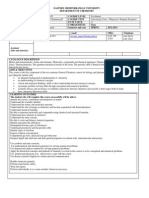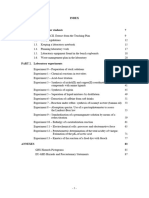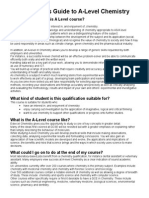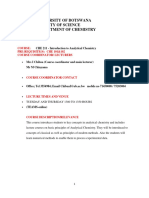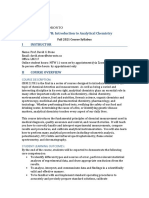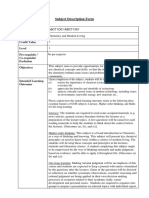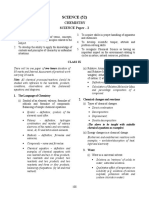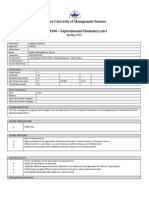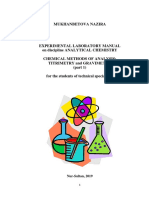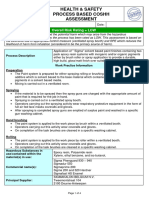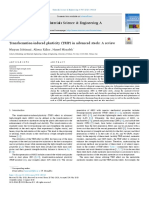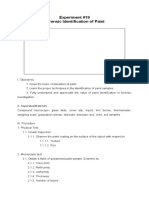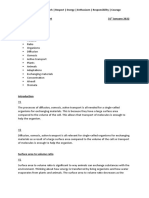0% found this document useful (0 votes)
7 views10 pagesCPR Module
The document outlines the curriculum for a chemistry module at Westerfield College, detailing course objectives, guided learning hours, assessment methods, and learning outcomes. Students are expected to develop practical skills, scientific understanding, and environmental awareness through various experimental techniques. The assessment comprises 40% coursework and 60% exam, with a minimum attendance requirement of 85%.
Uploaded by
opera4jah23Copyright
© © All Rights Reserved
We take content rights seriously. If you suspect this is your content, claim it here.
Available Formats
Download as PDF, TXT or read online on Scribd
0% found this document useful (0 votes)
7 views10 pagesCPR Module
The document outlines the curriculum for a chemistry module at Westerfield College, detailing course objectives, guided learning hours, assessment methods, and learning outcomes. Students are expected to develop practical skills, scientific understanding, and environmental awareness through various experimental techniques. The assessment comprises 40% coursework and 60% exam, with a minimum attendance requirement of 85%.
Uploaded by
opera4jah23Copyright
© © All Rights Reserved
We take content rights seriously. If you suspect this is your content, claim it here.
Available Formats
Download as PDF, TXT or read online on Scribd
/ 10






